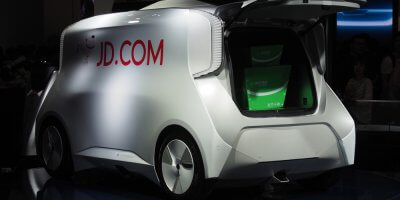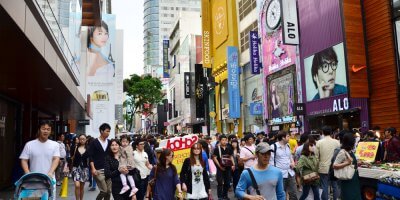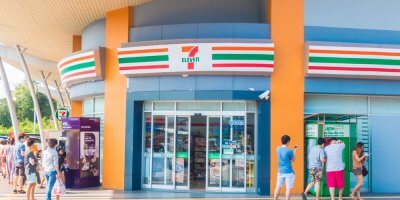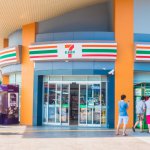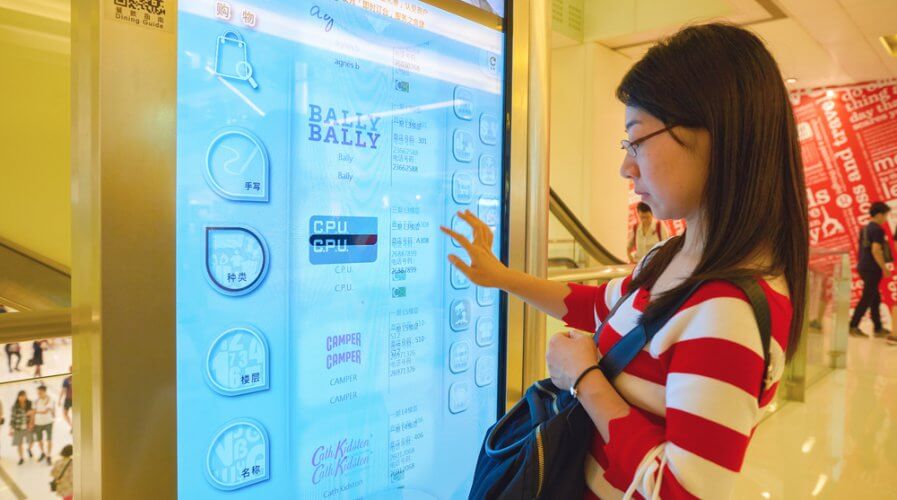
Smart retail is becoming more and more popular everyday. Source: Shutterstock
Diving into the world of smart retail and retail innovation with Unilever
SMART RETAIL is an innovative concept — one that leverages cutting edge technologies such as the internet of things (IoT), 5G, and artificial intelligence (AI) to create a delightful, futuristic shopping experience.
Most customers think of Amazon Go, the cashless store, as the most appropriate example of smart retail. But cashless is just one part of the puzzle; there’s so much more to it.
“It is a common misconception that smart retail is primarily unmanned convenience stores and buying and selling online,” Unilever Foundry Asia Director Barbara Guerpillon told Tech Wire Asia.
“There are actually many innovations in the smart retail ecosystem, including last-mile delivery and inventory management, smart vending machines, consumer retail experience, product discovery and reviews, smart packaging as well as shopper attribution and analysis.”
Unilever Foundry, Unilever’s global startup collaboration platform, identifies and invests in (smart retail) startups to help it accelerate innovation and take revenues past the EUR51 billion (US$57 billion) it earned last year.
Guerpillon and her counterparts bring Unilever’s 400+ brands and functions together with startups and scale-ups, to encourage innovation and create new partnerships with one end goal: to make customers happier.
According to the platform’s Asia Director, smart retail is not just changing the way people purchase or sell products, but also the way products are being placed on the shelf, how merchants manage inventory, and how brands communicate with consumers.
“Given Asia’s economic and cultural diversity as well as the region’s vast scale, there is an exciting opportunity for smart retail in the region.”
Smart retail is also making a social impact
“Through Unilever Foundry’s interaction with startups operating in the smart retail sector, we have observed the potential for retailers and brands to create an interactive and personalized shopping experience for consumers with the application of computer vision, smart mirrors, and real-time data analytics.”
However, Guerpillon is most fascinated by the societal impact that smart retail brings about.
“A key example would be Warung Pintar, a startup based in Indonesia that aims to provide equal entrepreneurial opportunities to all Indonesians.
“Today, Warung Pintar has provided more than 1,775 traditional warungs (kiosks) with WiFi and digital inventory systems to drive local business by effectively digitizing traditional stores.”
Another example of the societal impact that smart retail is bringing about can be observed at Kampong Glam in Singapore.
The shopping district in and around Arab Street provides tourists with plenty of opportunities to engage with small, local shops — but transforms the experience through a mobile app and a fair bit of engaging augmented reality content to go with it.
“Kampong Glam is a neighbourhood close to many Singaporeans’ hearts, with a rich blend of rich history and culture, as well as modern retail shops and contemporary eateries,” explained One Kampong Glam Chairman Saeid Labaffi.
“Strengthening our digital presence helps our merchants better connect to a younger generation of locals, as well as overseas visitors, to give them a chance to experience our unique mix of retail experiences and cultural heritage,” Lebaffi continued.
Definitely, the technologies that make up smart retail are making a deep societal impact where it matters the most — in the lives of the smallest traders, merchants, and shopkeepers.
What does smart retail really look like, then?
“The technology needed for smart retail to flourish would depend on the business models and subsequent products or services.”
In the retail sector, for example, cloud computing will continue to enable new service solutions, helping to deliver analytics and insights as well as giving rise to new functionalities such as real-time inventory management.
Brands and retailers need to be aware of the latest technologies (such as 5G, AI and IoT) and the benefits it can bring to their business.
“Leveraging on these breakthrough technologies can help brands and retailers address the rapidly changing consumer needs in a timely and effective manner, allowing for better overall engagement with customers.”
To ensure that their transformation stays on the right track, brands need to come up with their own digital-driven strategies supported with the right level of investment and by the right teams.
Deployment of technology like 5G will blur the line between physical retail and e-commerce even more in the future — which is where smart retail will make things even more interesting.
While Guerpillon doesn’t believe that retailers need to go all-in on the smart retail agenda immediately, she does believe it should be something they explore if they are keen on delighting customers and accelerating growth in the physical+digital or “phygital” era.
READ MORE
- Ethical AI: The renewed importance of safeguarding data and customer privacy in Generative AI applications
- How Japan balances AI-driven opportunities with cybersecurity needs
- Deploying SASE: Benchmarking your approach
- Insurance everywhere all at once: the digital transformation of the APAC insurance industry
- Google parent Alphabet eyes HubSpot: A potential acquisition shaping the future of CRM

